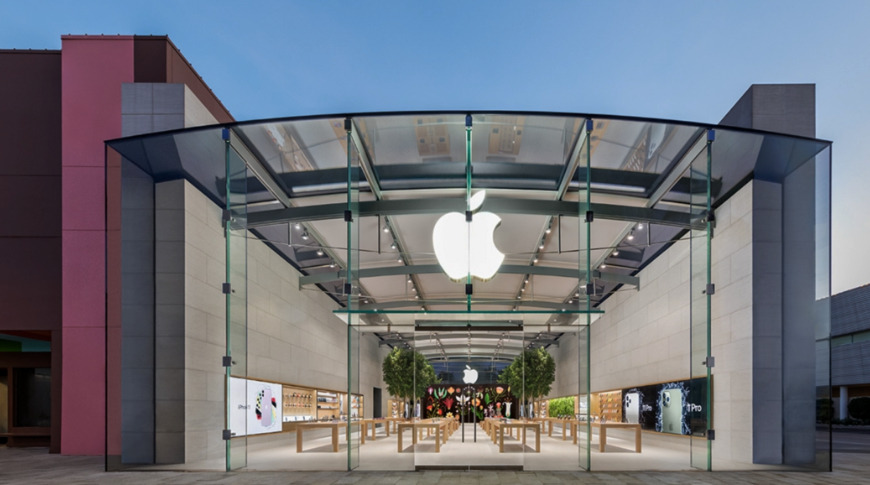Apple is closing seven of its Apple Stores in Texas as a response to a COVID-19 flare-up in the state.
The Cupertino tech giant had begun reopening select U.S. retail locations in May with new social distancing and hygiene measures. Apple shuttered all of its U.S. locations due to coronavirus in March.
Apple's closures of Texas stores is the second round of actions following a local resurgence of coronavirus cases.
"Due to current Covid-19 conditions in some of the communities we serve, we are temporarily closing stores in these areas. We take this step with an abundance of caution as we closely monitor the situation and we look forward to having our teams and customers back as soon as possible," Apple said previously in a statement about store closures.
The following Apple Stores will be closed until further notice:
- Baybrook in Friendswood, Texas
- First Colony Mall in Sugar Land, Texas
- Highland Village in Houston, Texas
- Houston Galleria in Houston, Texas
- Memorial City in Houston, Texas
- Willowbrook Mall in Houston, Texas
- The Woodlands in Woodlands, Texas
 Wesley Hilliard
Wesley Hilliard








 Bon Adamson
Bon Adamson
 Marko Zivkovic
Marko Zivkovic
 Amber Neely
Amber Neely
 Malcolm Owen
Malcolm Owen


 Christine McKee
Christine McKee



-m.jpg)






12 Comments
I’m sure Apple retail employees who work in areas with COVID-19 resurgences are relieved that their employer is more concerned about their well being than the bottom line.
Even the governor that has downplayed the virus and has rushed to reopen Texas in early May, is now calling for people to stay home:
https://www.click2houston.com/news/texas/2020/06/24/texas-governor-says-state-facing-massive-covid-19-outbreak-expects-state-to-pass-5000-new-cases-again-wednesday/
Houston area is at near capacity in hospitals. Dallas, Austin, and San Antonio metro areas have had significant increases in cases and hospitalizations.
Texas has had 5x increase in daily positive cases since reopening, and is now #5 in the nation on number of cases:
https://www.nytimes.com/interactive/2020/us/texas-coronavirus-cases.html
Also WHO clarified their comments to indicate the difference between asymptomatic and presymptomatic:
On Tuesday, Van Kerkhove and her colleague Mike Ryan, MD, executive director for health emergencies at the WHO, explained that there are two distinct kinds of silent transmission: “asymptomatic” (spreading a disease when you don’t have symptoms) and “presymptomatic” (spreading it before symptoms start). Both are difficult to stop. Presymptomatic spread is believed to be far more common than asymptomatic spread.
The new coronavirus can infect the upper respiratory tract -- the nose and throat, said Ryan, adding that any situation where a person is expelling air under pressure may drive the virus out. He gave the example of someone shouting at their friend in a loud nightclub.
“Some studies have been done on this -- singing, speaking loudly, exertion, maybe in a gym where you’re breathing very heavily,” he said. “Clearly that is playing a role in transmission, there’s no question.”
While true asymptomatic transmission might be uncommon, what’s likely to be more common is presymptomatic transmission. Presymptomatic transmission also occurs with the flu. Studies have shown that people with COVID-19 can infect others anywhere from 1 to 3 days before they get sick, Van Kerkhove said.
Ryan also pointed out that in COVID-19, a person’s viral load, the amount of the virus they have in their body, appears to peak right as they get their first symptoms.
“That means you could be in a restaurant feeling perfectly well and just starting to get a fever, but you’re feeling OK, you didn’t think you needed to stay home. That’s the moment when your viral load could be quite high,” said Ryan.
That’s why masks are important, he said, especially when you can’t stand or sit at a distance from others.
“There is this period of time, you know, where even a professor of infectious diseases themselves wouldn’t know that I’m getting COVID,” Ryan said. “You’re not aware of your status.”
“It’s because the disease can spread at that moment that the disease is so contagious,” he said. “That’s why it has spread around the world in such an uncontained way."
https://www.webmd.com/lung/news/20200609/who-clairifies-comments-on-asymptomatic-covid-spread